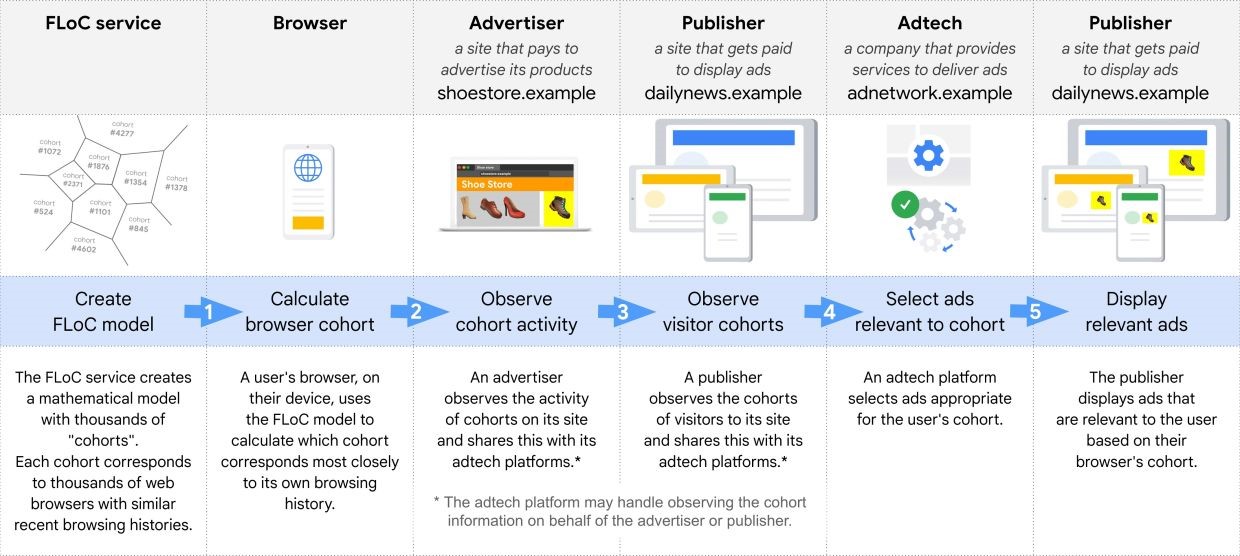
The death of the third-party cookie world as we know it is taking place steadily, and Google is leading its army forces.
Not surprisingly, the traditional tracking method involving third-party cookies is not a particular fan favorite. By leaps and bounds, it has received global disapproval for its privacy-intrusive features. With many of the world’s leading browser networks taking a stand and blocking third-party cookies from their site, major players such as Mozilla’s Firefox, Microsoft Edge, and Apple’s Safari all promote a cookie-less experience for users, or at least in the sense that there is no third-party tracking by default on their sites.
However, that does not mean that user’s data as they scour the net is not collected through other shady and illegal means.
So, why is Google not actively blocking third-party cookies?
Or better yet, why not. Google boasts a significant ad revenue, at almost half of its total yearly profits through its massive ad business. Experts estimate that this figure could total up to 29% of the digital ad share globally.
2020 saw Alphabet – Google’s holding company, generate nearly all of its profits – reportedly over $183 billion in revenue with 80% of that coming from Google’s ads business.
Google’s ad business thrives based on two things – for advertisers, it is a means to generate quality leads for remarketing and targeting. For users like you and me, Google makes more money when the ads they display are relevant, relatable, and desirable to us. The more relevant the ad is to a user, the more likely the user will purchase, thus enabling Google to earn a commission for each sale. As users flock to Chrome, this private data is essential in this cycle.
In simpler terms, Google tracks third-party cookies by default from their Chrome, not even in Incognito mode. It is then up to the users to educate themselves and manually disable all third-party cookies in the settings.

So, what does this mean to the online advertising world?
Google is the alpha. Leading the world with its complete ecosystem of on-suite apps and services such as Google Drive, Spreadsheets, and Gmail, Google is in charge of nearly the world’s data through its popular browser, Google Chrome. (We bet that is where you are reading this article from.)
Think of it this way – the power lies in monopoly.

Image Source: Digit.in, January 2015
Although Search is Google’s most popular property, its YouTube advertising business, providing an alternative to traditional television, has been an up-and-coming cash cow.
If Google has been doing it right, then why introduce FLoC now?
Cookies are inherently disrupting user privacy. As the digital user becomes increasingly knowledgeable with its uses – both good and bad, the world shines a spotlight on leading networks’ efforts in solving the cookie debacle.

Then came FLoC for Google, or the Federated Learning of Cohorts. Google’s new system enables browsers to profile you and your recent browsing activity into behavioral labels or data cohorts. Estimated to launch within a year from now, the technology will avoid the privacy risks of third-party cookies but will inadvertently create newer ones.
Rising to the issue of ad-tech giants and data brokers exploiting private data, Google’s FLoC should prevent singular data discrimination and therefore causing less intrusion of a single user’s privacy.

Image Source: The Star, April 2021
It begs the question – will advertisers still target users accurately with FLoC?
Perhaps the argument goes as follows.
Instead of completely eradicating the use of third-party cookies, FLoC will group users based on their digital footprint (for those using Google’s ecosystem of apps and services) into categories for advertisers. Google stands firmer with advertisers’ plight rather than users, however. Advertisers can expect to see around 95% of the conversions per dollar spent compared to the current cookie-based advertising.
FLoC forms a part of Google’s Privacy Sandbox Initiative, a means of phasing third-party cookie tracking into its newer replacement. Despite the conviction from Google that intrusion of privacy remains a third-party cookie problem, privacy groups and activists remain skeptical.

This regulation points to one given – Google will earn a higher monopoly of the world’s data as each user gets intertwined with Chrome. In response to this, Google will be switching the Privacy Sandbox initiative into an open standard. Yet, this only brings new problems to light.
It stands to show that Google knows more about you than any other business in the world, and as evidenced by FLoC, this monopoly is unlikely to end the cookie debacle once and for all.
What would a world look like with only one brand governing all this data for use?

We get that the digital world may be challenging and tricky for the best of us at times. At elfo, let us help you turn that around. Our Digital Marketing Services is ready to help you declutter all the noise for maximum results.




